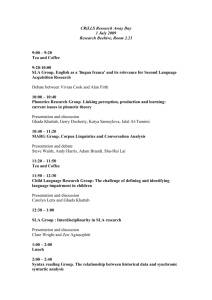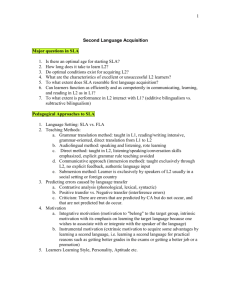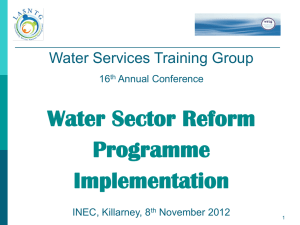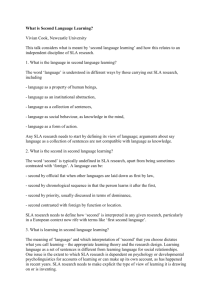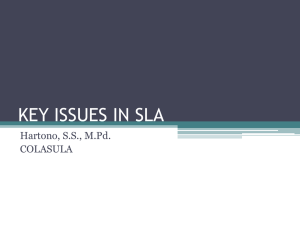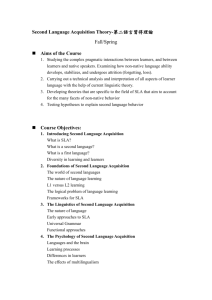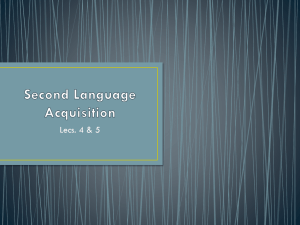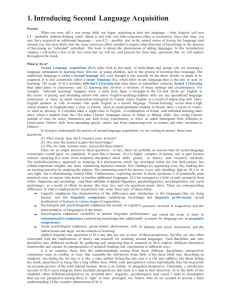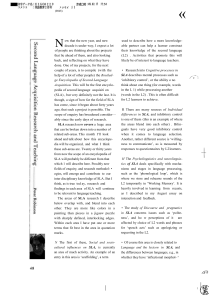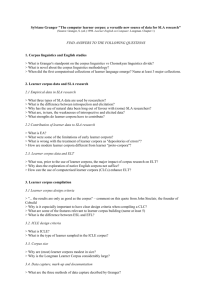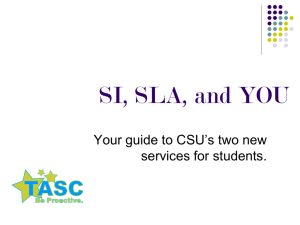Contribution of learner corpora to SLA
advertisement
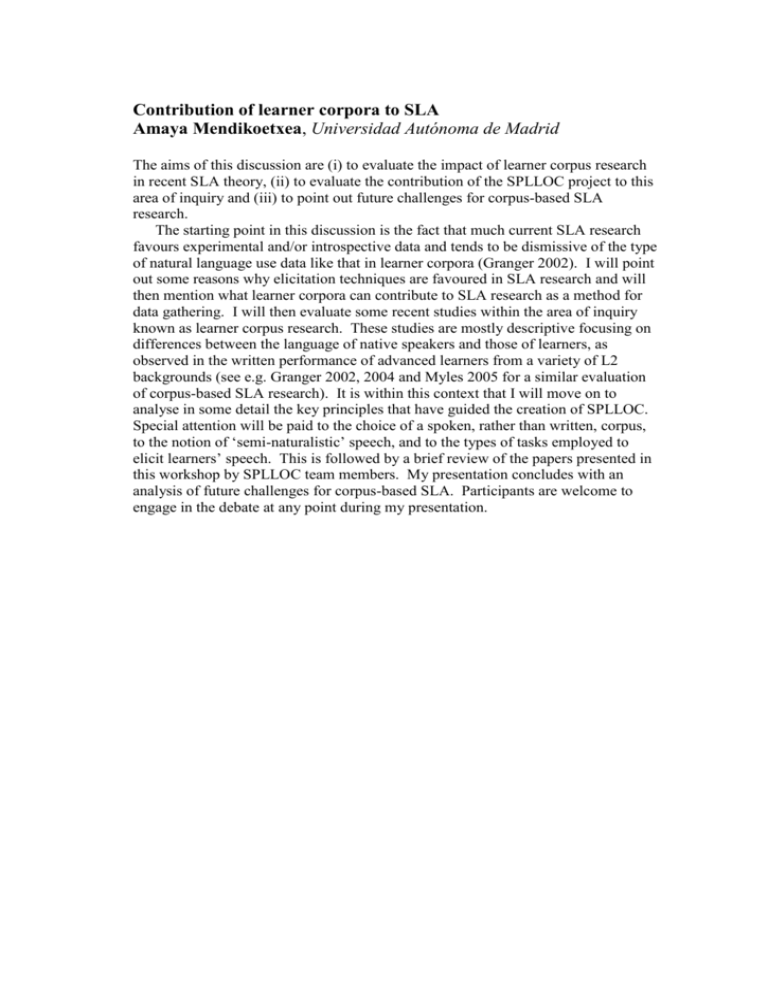
Contribution of learner corpora to SLA Amaya Mendikoetxea, Universidad Autónoma de Madrid The aims of this discussion are (i) to evaluate the impact of learner corpus research in recent SLA theory, (ii) to evaluate the contribution of the SPLLOC project to this area of inquiry and (iii) to point out future challenges for corpus-based SLA research. The starting point in this discussion is the fact that much current SLA research favours experimental and/or introspective data and tends to be dismissive of the type of natural language use data like that in learner corpora (Granger 2002). I will point out some reasons why elicitation techniques are favoured in SLA research and will then mention what learner corpora can contribute to SLA research as a method for data gathering. I will then evaluate some recent studies within the area of inquiry known as learner corpus research. These studies are mostly descriptive focusing on differences between the language of native speakers and those of learners, as observed in the written performance of advanced learners from a variety of L2 backgrounds (see e.g. Granger 2002, 2004 and Myles 2005 for a similar evaluation of corpus-based SLA research). It is within this context that I will move on to analyse in some detail the key principles that have guided the creation of SPLLOC. Special attention will be paid to the choice of a spoken, rather than written, corpus, to the notion of ‘semi-naturalistic’ speech, and to the types of tasks employed to elicit learners’ speech. This is followed by a brief review of the papers presented in this workshop by SPLLOC team members. My presentation concludes with an analysis of future challenges for corpus-based SLA. Participants are welcome to engage in the debate at any point during my presentation.
